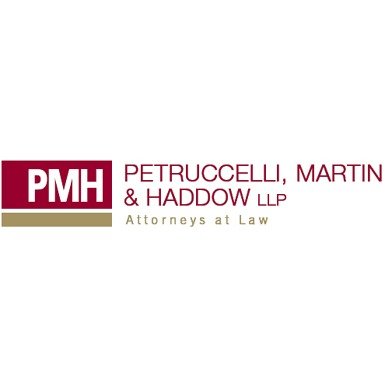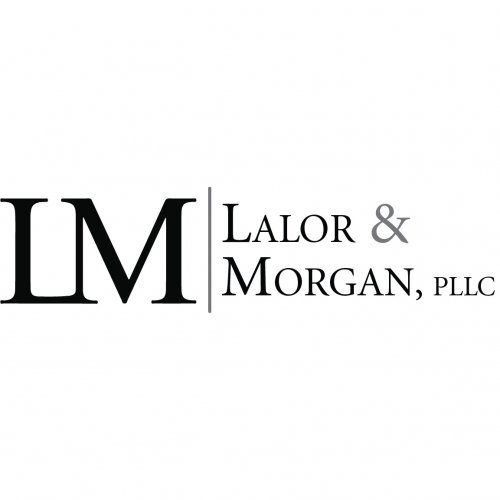Best Government Relations & Lobbying Lawyers in United States
Share your needs with us, get contacted by law firms.
Free. Takes 2 min.
Or refine your search by selecting a city:
List of the best lawyers in United States
About Government Relations & Lobbying Law in United States
Government Relations & Lobbying in the United States entails the practice of influencing public policy through direct interaction with government representatives and officials. This field encompasses a range of activities, including advocacy, public affairs, and compliance with legal frameworks governing lobbying activities. Lobbyists represent interests of various sectors such as businesses, non-profits, and labor unions, seeking to inform and persuade policymakers in favor of their perspectives. Understanding the legal complexities in this sphere is crucial, given the stringent laws and regulations imposed at both the federal and state levels.
Why You May Need a Lawyer
Engaging with government relations and lobbying activities often necessitates legal expertise due to the complex regulatory environment. Here are some common scenarios where legal assistance might be required:
- Guidance on compliance with federal and state lobbying registration and disclosure obligations.
- Representation and advocacy in front of legislative bodies or agencies.
- Advising on campaign finance laws and associated legal considerations.
- Assistance in understanding and navigating ethics rules and conduct for government interactions.
- Support in developing lobbying techniques and strategic approaches within legal frameworks.
Local Laws Overview
In the U.S., government relations and lobbying activities are primarily governed by the Lobbying Disclosure Act at the federal level, which mandates the registration and reporting of lobbying activities. State and local jurisdictions may have additional laws and ordinances regulating lobbying, often requiring separate registration and compliance with local ethics laws. Key aspects to be aware of include:
- Registration requirements and deadlines for lobbyists.
- Public disclosure norms for lobbying activities and funding sources.
- Limitations on gifts, travel, and entertainment provided to government officials.
- Restrictions on campaign donations and political contributions by lobbyists and their employers.
- Periodic reporting obligations detailing lobbying expenditures and contacts.
Frequently Asked Questions
What is the definition of lobbying?
Lobbying involves efforts to influence government decision-making in favor of specific interests or causes, typically through communication with legislators or government officials.
Who needs to register as a lobbyist?
Individuals or entities meeting the criteria set by the Lobbying Disclosure Act, including those who earn above a certain threshold for lobbying activities, typically must register as lobbyists.
What are the penalties for non-compliance with lobbying laws?
Penalties can include fines, and in some cases, criminal charges for severe violations such as willful failure to register or report accurately.
Are there restrictions on gifts lobbyists can provide to public officials?
Yes, many jurisdictions impose strict limits on gifts to prevent undue influence, often restricting their value and nature.
How often must lobbyists file reports?
Lobbyists are generally required to file reports quarterly, though the frequency can vary depending on specific state regulations.
Do non-profit organizations need to register for lobbying?
Yes, if non-profit organizations engage in activities that meet the legal definition of lobbying, they must adhere to relevant registration and reporting requirements.
How can a lawyer assist with government relations?
A lawyer can provide critical advice on compliance, represent clients in front of legislative bodies, and ensure adherence to ethics and campaign finance laws.
Can international companies lobby in the U.S.?
International companies can lobby in the U.S., but they must comply with domestic lobbying laws and disclosure requirements.
What is grassroots lobbying?
Grassroots lobbying involves efforts to influence government policy by mobilizing the public or constituency to communicate with legislators.
Are there ethical considerations in lobbying?
Yes, ethical considerations are paramount, with specific rules governing conflicts of interest, transparency, and the conduct of lobbyists.
Additional Resources
For those seeking further information or assistance in government relations and lobbying, consider the following resources:
- The American League of Lobbyists
- The Center for Responsive Politics
- The National Conference of State Legislatures
- U.S. House and Senate lobbying disclosure databases
Next Steps
If you require legal assistance in government relations and lobbying, consider taking the following steps:
- Consult with an attorney specializing in government relations and lobbying laws to discuss your needs and objectives.
- Research and identify legal firms and specialists with experience in this area to ensure you're receiving informed advice.
- Ensure all information and documentation are prepared for discussions with legal counsel to facilitate a comprehensive understanding of your situation.
Seeking professional legal guidance is crucial to successfully navigate the complexities of government relations and lobbying in the United States.
Lawzana helps you find the best lawyers and law firms in United States through a curated and pre-screened list of qualified legal professionals. Our platform offers rankings and detailed profiles of attorneys and law firms, allowing you to compare based on practice areas, including Government Relations & Lobbying, experience, and client feedback.
Each profile includes a description of the firm's areas of practice, client reviews, team members and partners, year of establishment, spoken languages, office locations, contact information, social media presence, and any published articles or resources. Most firms on our platform speak English and are experienced in both local and international legal matters.
Get a quote from top-rated law firms in United States — quickly, securely, and without unnecessary hassle.
Disclaimer:
The information provided on this page is for general informational purposes only and does not constitute legal advice. While we strive to ensure the accuracy and relevance of the content, legal information may change over time, and interpretations of the law can vary. You should always consult with a qualified legal professional for advice specific to your situation.
We disclaim all liability for actions taken or not taken based on the content of this page. If you believe any information is incorrect or outdated, please contact us, and we will review and update it where appropriate.
Browse government relations & lobbying law firms by state in United States
Refine your search by selecting a state.

















